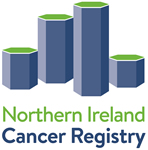Measuring the Impact of COVID-19 on Breast Cancer services and patients
This survey is part of a Breast Cancer Now funded Project to measure the Impact of COVID-19 on breast cancer services and patients.
The work is taking place in Queen's University Belfast with patients and clinicians part of the research team.
WHY - The reason for this work is that:
Globally, breast cancer screening, diagnosis and treatment services have been significantly impacted by the COVID-19 pandemic. Locally, the Northern Ireland Cancer Registry (NICR) reported a 34% reduction in pathological diagnosed breast cancers between March and June 2020 compared with the equivalent period in 2017-2019.
AIM
The project aims to improve outcomes for male and female breast cancer patients by documenting the impact of COVID-19 on their care and identifying areas where service improvements are needed now and in the future.
HOW - Techniques and Methodology
The online ethically-approved, self-completed survey will help ensure the views and voices of breast cancer patients are heard. We will later conduct in-depth interviews with some breast cancer patients about their experiences during the pandemic.
We are also measuring data on 2,200 breast cancer patients diagnosed in Northern Ireland (NI), half from March to December 2020 (initial COVID-19 era) and half from 2018 (pre-COVID-19) regarding their method of presentation (screening / emergency), investigations, comorbidities (other diseases including COVID-19), molecular markers, stage, treatment and survival. We will also measure adherence to relevant National Institute for Health and Care Excellence (NICE) guidance for breast cancer patient pathways. This work is taking place in the secure environment of the NI Cancer Registry (ISO 27001 accredited).
IMPACT ON BREAST CANCER RESEARCH
This study will provide new information on the impact of COVID-19. This will support service recovery and safeguarding of breast cancer services in the UK and beyond should future disruptions occur and also enable comparisons with similar national/international data. Anonymous datasets generated will facilitate further studies investigating the impact of COVID-19 on breast cancer patients, including long-term survival, and will also be available for use by other researchers (e.g. NI Biobank etc.).

